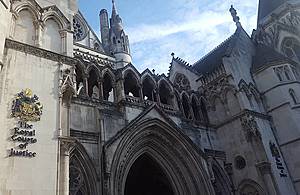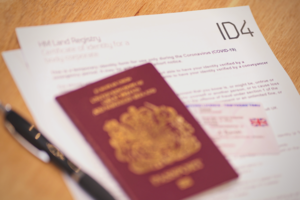- Business Improvement Districts set to receive £6.1 million in response to the coronavirus (COVID-19) pandemic
- Hundreds of BIDs across England will receive support to help cover their day to day costs for the next 3 months
- Today’s funding comes on top of the government’s comprehensive package of support for business and workers during the economic emergency
Hundreds of local business partnerships across England will share £6.1m of funding to spend on projects that will help their local economies through the uncertainty of the coronavirus (COVID-19) pandemic, High Streets Minister Simon Clarke MP confirmed today (1 May 2020).
The money will be paid to local authorities and dispersed to Business Improvement Districts (BIDs). These are local business partnerships that bring developers and communities together to provide local leadership, drive regeneration and deliver projects and additional local services.
Many BIDs are now playing a crucial role during these challenging economic times, offering hands-on support to those businesses affected, including advice services, increased security to protect businesses that have closed, and providing key intelligence to local and central government on the impact of the coronavirus outbreak on their local economies.
High Streets Minister Simon Clarke MP said:
The government has announced a comprehensive programme of support for businesses to help them deal with the economic impact caused by the COVID-19 pandemic and today we are extending that support to Business Improvement Districts.
BIDs are uniquely placed and have a proven track record of success in supporting local businesses, empowering communities, championing our town centres and driving forward the renewal of our high streets.
It’s only right that during these unprecedented times we give them all the necessary support they need to continue operating, so that they can carry on their vital work now and crucially when we move into the recovery phase from the current crisis.
Today’s funding comes on top of the government’s comprehensive package of support for business and workers during the economic emergency including:
- the Coronavirus Job Retention Scheme where small and large employers will be eligible to apply for a government grant of 80% of workers’ salaries up to £2,500 a month, backdated to 1 March and available for at least 3 months
- £330 billion worth of government backed and guaranteed loans to support businesses including a new Bounce Back Loans scheme, which will provide loans of up to £50,000 available to the smallest businesses affected by the coronavirus pandemic
- a deferral of the next quarter of VAT payments for firms, until the end of June 2020 – representing a £30 billion injection into the economy
- a £12.3 billion package for local authorities to deliver grants of up to £25,000 to eligible businesses in the retail, hospitality and leisure sectors
- new temporary measures to safeguard the UK high street against aggressive debt recovery actions during the coronavirus pandemic
British BIDs Chris Turner commented:
Government has listened to the requests that we have made on behalf of the BID industry.
I am exceptionally grateful to the numerous BIDs that have actively supported and engaged with this process, particularly those who joined in our initial Q&A sessions and completed the online survey which, together, provided us with the evidence that we needed.
My thanks also must go to those levy paying businesses that have backed their BIDs in the request for assistance and to the ATCM and the BID Foundation who have worked in partnership with us on this.
I am pleased that the outcome is this announcement of much needed support for the industry.
Bill Addy, Chair of The BID Foundation, said:
BIDs have already stepped up to support those affected by the COVID-19 crisis.
This includes working with local councils, emergency services and businesses to ensure help and information gets to those who need it; supporting shuttered shops to adapt and deliver their services online; and helping to coordinate safe and secure spaces that meet health advice.
This new government support is a partial safeguard for BIDs, which are paid for by their member businesses, and will enable them in the short term to continue their vital local efforts now and to plan for the future.
Simon Quin, Executive Director of the High Streets Task Force, said:
BIDs have established networks and capacity in their local areas which provide vital coordination and help, both for businesses getting back on their feet and for communities that will need guidance and reassurance to return to the high street, when it is safe to do so.
By accessing this support, BIDs can ensure they continue to make a real difference to the recovery of our town and city centres.
BIDs are proven an effective vehicle of leveraging private investment and have a significant role to play in high street regeneration: in 2019, BIDs across England raised over £106.7 million through levy payments to invest back into their respective towns and cities. Their role will be even more important in the recovery phase from the current crisis.
BIDs have been a key tool in the development of local leadership and growth in high streets and town centres since 2004.
There are 261 BIDs in England, For more information, please visit the British BIDs website.
The majority of BIDs in England collect their levies at the start of the financial year and the support for BIDs has been calculated on the basis that:
- BIDs in England spend their operational costs evenly every quarter
- BIDs in England would have spent approximately £6.1 million on operational costs
Funding to local authorities will come through a section 31 grant.
The money will go to Business Improvement Districts (BIDs), local business partnerships that bring local authorities, developers and communities together to provide local leadership, drive regeneration and deliver projects and additional local services.
These monies will be distributed via a grant to local authorities to be passed on to BIDs, and will cover funding for 3 months and contribute to their operational costs.
Today’s announcement is in addition to measures announced in March to support BIDs:
-
on 23 March we announced emergency legislation to support BIDs in the Coronavirus Act 2020
-
the clauses enables BIDs to extend the maximum duration of their BID arrangements until 31 March 2021, delaying BID ballots
-
it delays BIDs’ ballots between Royal Ascent of the Act (25 March) and 31 December 2020 by extending the BID arrangements until 31 March 2021
-
this allows businesses to focus on recovery from economic shock before deciding whether to participate in BID arrangements for the following 5-year period, and allows BIDs to coordinate their places’ recovery


